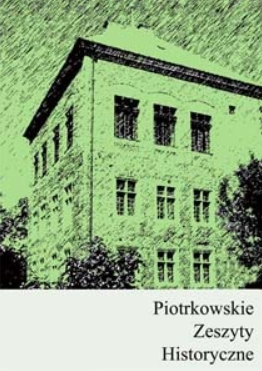Plagi na muzułmanów? Kwestia epidemii w Chronografii Teofanesa Wyznawcy w relacjach dotyczących kalifatu i jego poddanych
The Muslim plague? The issue of epidemics in the Chronographia of Theophanes the Confessor in the context of the Caliphate and Muslims image
Author(s): Błażej CecotaSubject(s): International relations/trade, Health and medicine and law, 6th to 12th Centuries
Published by: Instytut Historii UJK - Filia w Piotrkowie Trybunalskim
Keywords: Theophanes of Confessor; Byzantine historiography; Chronographia; Arab-Byzantine relations; epidemiology; epidemic; pandemic; infectious diseases;
Summary/Abstract: The article concerns the descriptions of the epidemics in countries under Muslim rule, recorded by Theophanes the Confessor in Chronographia. According to the author, the most famous description of the plague in the imperial capital in the time of Constantine V contained references to supernatural phenomena. Likewise, some descriptions of earthquakes appeared, following the logic of the source, to „predict” adverse political events. However, the accounts of the pandemic in the Syrian and Mesopotamian territories, under the authority of the caliphs, do not seem to fulfill either of these roles in the Confessor’s narrative. Theophanes did not recognize them as God’s special action against infidels, as he did in the description of „exceptional” sea storms during the siege of Constantinople, which led to the destruction of the Arab fleet.
Journal: Piotrkowskie Zeszyty Historyczne
- Issue Year: 22/2021
- Issue No: 2
- Page Range: 29-45
- Page Count: 17
- Language: Polish

